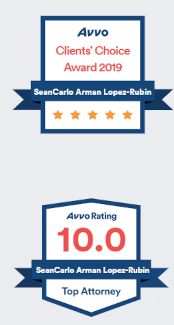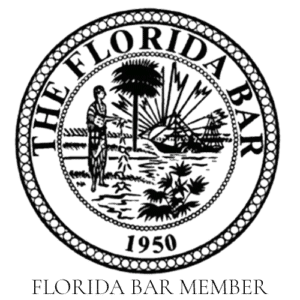Florida Whistleblower Attorney
Florida Attorneys
Serving You and The State of Florida
An employee just dropped a bombshell. They reported something – maybe fraud, maybe a safety issue, maybe something else entirely – and now they’re claiming protection under whistleblower laws. Suddenly, your business is under a microscope, and the word “retaliation” is being thrown around.
This isn’t just another HR headache. Whistleblower claims carry serious legal weight in Florida, potentially leading to investigations, lawsuits, hefty fines, and damage to your company’s reputation. You need to understand the landscape and how to respond appropriately.
If you’re an employer facing a whistleblower situation, knowing your rights and obligations is paramount. Florida whistleblower lawyer at Lopez Law Group focuses on whistleblower defense for employers, helping businesses manage these complex and sensitive claims. Call us at (727) 933-0016 to discuss your situation.
Florida Whistleblower Guide
- Why Choose Lopez Law Group for Whistleblower Defense?
- What Exactly is a Whistleblower Claim in Florida?
- Potential Fallout: Penalties and Wider Consequences for Employers
- The Whistleblowing Landscape in Florida: Where Claims Often Arise
- How Lopez Law Group Defends Employers
- What Employers Should Do When Facing a Whistleblower Claim
- Protect Your Business with Experienced Defense
Why Choose Lopez Law Group for Whistleblower Defense?

Sean Lopez, Florida Whistleblower Attorney
When you’re facing a whistleblower claim, you need a legal team that understands the stakes from an employer’s perspective. At Lopez Law Group, we provide robust defense strategies for businesses navigating these tricky waters. Our team focuses on protecting your company’s interests while ensuring compliance with Florida’s intricate whistleblower statutes.
Clients tell us they value our responsiveness and straightforward communication, especially when dealing with urgent legal matters like these. We give you honest assessments – we don’t pursue unproductive legal battles just to rack up fees. Our goal is to achieve the best possible outcome for your business efficiently and ethically, focusing on resolutions that protect both your finances and your reputation.
Our main office is conveniently located at 700 Central Ave, Suite 401, St. Petersburg, FL 33701. Situated in the heart of downtown St. Pete, we’re just a few blocks from Tropicana Field and easily accessible via the Central Avenue Trolley and local bus routes. We pride ourselves on offering dedicated, client-focused service. You’ll feel supported and informed throughout the process.
What Exactly is a Whistleblower Claim in Florida?

Let’s break down what “whistleblowing” actually means in a legal context, particularly for you as an employer in Florida. It involves an employee (or sometimes an independent contractor) reporting or objecting to activities they reasonably believe are illegal, fraudulent, or violate specific public health, safety, or welfare rules.
The core idea is that employees shouldn’t face negative consequences for bringing potential wrongdoing to light. Florida law provides specific protections for these individuals, shielding them from retaliation.
Activities that might trigger a whistleblower claim could include an employee reporting things like:
- Suspected fraud against the government (like Medicare or Medicaid fraud).
- Violations of state or federal laws, rules, or regulations.
- Gross mismanagement, malfeasance, or waste of public funds (primarily in public sector cases).
- Actions creating a substantial and specific danger to public health or safety.
- Refusing to participate in an activity that would violate a law or regulation.
Several key Florida laws govern these situations, primarily:
- The Florida Whistleblower Act (FWA): Found in Florida Statutes § 112.3187 (for public employees) and §§ 448.101-448.105 (for private employees). This act prohibits employers from taking retaliatory personnel action against an employee who discloses or threatens to disclose certain violations of law, rule, or regulation, or who objects to or refuses to participate in such violations.
- The Florida False Claims Act (FFCA): Found in Florida Statutes §§ 68.081-68.092. This law deals specifically with fraud against the state government or local governments. It allows whistleblowers (known as “relators” in this context) to file lawsuits on behalf of the government and potentially receive a portion of any recovered funds. It also includes anti-retaliation provisions.
A whistleblower claim essentially alleges that the employer took an adverse action because the employee engaged in protected whistleblowing activity. Potential adverse actions could include:
- Termination or suspension.
- Demotion or loss of seniority.
- Threats or harassment.
- Reduction in pay or benefits.
- Unwarranted negative performance reviews.
- Discriminatory actions affecting terms or conditions of employment.
To successfully prove a retaliation claim under the FWA, an employee generally needs to show:
- They engaged in a statutorily protected activity (like reporting a suspected violation).
- They suffered an adverse employment action.
- There’s a causal link between the protected activity and the adverse action. This often involves showing temporal proximity (the adverse action happened shortly after the protected activity) and potentially demonstrating that the employer’s stated reason for the action was pretextual (a cover-up for retaliation).
Defending against such a claim means challenging one or more of these elements. This could involve demonstrating that the employee didn’t engage in a protected activity as defined by law, that no legally recognized adverse action occurred, or, most commonly, that the adverse action was taken for legitimate, non-retaliatory business reasons unrelated to any whistleblowing activity.
Potential Fallout: Penalties and Wider Consequences for Employers

So, an employee has made a whistleblower claim. What’s actually at stake for your business? The consequences extend beyond just legal fees and can impact your operations, finances, and reputation significantly.
Under the Florida Whistleblower Act (§ 448.103 for private employers), if an employee successfully proves retaliation, a court can order remedies designed to make the employee “whole” again. This might include:
- Reinstatement to their former position with full seniority and benefits.
- Compensation for lost wages, benefits, and other remuneration.
- Injunctive relief (court orders preventing further retaliation).
- Payment of the employee’s reasonable attorney’s fees and court costs.
If the claim involves the Florida False Claims Act (FFCA), the stakes related to the underlying fraud allegation are even higher. If the government proves fraud occurred, your business could face:
- Paying up to three times the amount of damages the government sustained because of the fraudulent act.
- Civil penalties for each false claim submitted, currently ranging from $5,500 to $11,000 per violation (these amounts adjust periodically for inflation).
Remember, the FFCA also has its own anti-retaliation provisions (§ 68.087), offering similar relief to employees who face retaliation for reporting suspected fraud under this act (reinstatement, 2 times back pay, interest, special damages, litigation costs, and reasonable attorneys’ fees).
Beyond legal and financial risks, other significant consequences include:
- Reputational Harm: Whistleblower lawsuits, especially those involving fraud or public safety, attract media attention. This can severely damage your company’s image with customers, suppliers, and the community.
- Operational Disruption: Investigations and litigation demand significant time and resources from management and staff, diverting focus from core business activities.
- Employee Morale: A whistleblower claim can create tension and distrust within the workforce, impacting productivity and company culture.
- Increased Scrutiny: A substantiated claim might lead to closer monitoring by regulatory agencies or licensing boards, potentially impacting future operations or contracts.
- Difficulty Attracting Talent: A reputation for retaliating against employees can make it harder to recruit top candidates.
The Whistleblowing Landscape in Florida: Where Claims Often Arise

Florida’s large healthcare industry, particularly in major metropolitan areas like Miami-Dade, Broward, Palm Beach, Tampa, and Orlando, is a known hotspot for healthcare fraud allegations. Claims often involve Medicare and Medicaid billing practices, kickbacks, or violations of patient safety regulations. Whistleblowers play a significant role in federal and state efforts to recover funds lost to healthcare fraud, making this a high-risk area for providers.
Government contracting is another fertile ground. With extensive state and local projects involving infrastructure, transportation, and public services, opportunities for reporting alleged fraud, waste, or safety shortcuts arise. The Florida False Claims Act directly targets fraud involving state or local government funds, incentivizing reports in this sector.
Connecting Accidents and Safety Reports
Florida sees a high volume of traffic incidents, with around 400,000 crashes annually. While a car accident itself doesn’t trigger a whistleblower claim, the underlying conditions leading to unsafe practices might. For example:
- An employee at a trucking company reporting falsified safety logs or inadequate vehicle maintenance after a series of accidents.
- A construction worker on a road project reporting violations of safety protocols that create hazards for workers or the public, especially near known dangerous intersections like those frequently cited in Jacksonville, Hollywood, or Broward County.
- An employee reporting that safety concerns raised internally were ignored, leading to a preventable incident.
Cities with high traffic volumes and complex infrastructure (Miami, Orlando, Tampa, Jacksonville) naturally present more scenarios where safety regulations in transportation, construction, or related industries might be allegedly violated and subsequently reported.
Key Statistics and Protections
It’s worth remembering the incentives and protections involved:
- FFCA Rewards: Whistleblowers can receive 15–25% of recovered funds if the state intervenes, or 25–30% if they pursue the case successfully on their own.
- FWA Protections: Employees are protected from termination, demotion, suspension, and other negative actions for reporting violations. Remedies include reinstatement, back pay, and legal fees.
Florida authorities recognize the role of whistleblowers. For instance, the U.S. Attorney’s Office for the Southern District of Florida recently launched initiatives encouraging self-disclosure of corporate misconduct, highlighting the ongoing focus on uncovering fraud and illegal activities, often through whistleblower information.
How Lopez Law Group Defends Employers

Given Florida’s robust whistleblower protections and the significant potential penalties, facing such a claim requires a proactive and informed defense. Simply ignoring the issue or reacting defensively without legal guidance can worsen the situation. Attempting to manage this complex legal terrain alone puts your business at serious risk.
At Lopez Law Group, we focus on defending employers against whistleblower allegations. Our approach involves several key steps tailored to your specific circumstances:
- Thorough Investigation: We meticulously examine the facts surrounding the employee’s claim and the alleged underlying violation. This includes reviewing internal documents, communications, personnel files, and interviewing relevant parties.
- Analyzing the Claim’s Legal Basis: We assess whether the employee’s actions actually constitute protected activity under the relevant Florida statutes (FWA or FFCA). Does the reported issue legally qualify? Was the report made in good faith?
- Evaluating the Adverse Action: We scrutinize the employment action taken. Was it truly adverse? Crucially, can we demonstrate legitimate, non-retaliatory business reasons for the decision, supported by documentation and consistent application of company policy?
- Developing a Defense Strategy: Based on our findings, we craft a strategy. This might involve challenging the legal merits of the claim, demonstrating legitimate business justifications for the employment action, or negotiating a resolution where appropriate.
- Compliance Counseling: Beyond the immediate claim, we can advise on strengthening internal policies and training procedures to minimize the risk of future whistleblower claims and ensure proper handling if they arise.
- Litigation Defense: If the matter proceeds to court, we provide vigorous representation, presenting your defense clearly and effectively, aiming to disprove the causal link between the alleged whistleblowing and the adverse action.
Our focus is on turning detailed documentation, consistent practices, and a clear narrative into a strong defense. We work to show that your actions were based on documented performance issues, policy violations, restructuring needs, or other valid business considerations—not as punishment for whistleblowing.
What Employers Should Do When Facing a Whistleblower Claim
You’ve received notice of a whistleblower complaint or lawsuit, or maybe an employee has internally reported something that could escalate. Your immediate actions (and inactions) are very important.
First, take a deep breath. Then, act deliberately:
- Preserve Everything: Immediately implement a legal hold on all potentially relevant documents. This includes emails, personnel files, performance reviews, internal investigation notes, policy documents, training records, communication logs – anything related to the employee, the reported issue, and the employment decision in question. Do not delete or alter records.
- Do Not Retaliate (or Appear To): This sounds obvious, but it’s paramount. Avoid any action that could be perceived as retaliation against the reporting employee or others suspected of cooperating. This includes sudden negative reviews, demotions, undesirable transfers, exclusion from meetings, or termination. Even seemingly minor slights can be twisted into evidence of retaliation.
- Review Internal Policies: Check your company handbook and policies regarding reporting procedures, anti-retaliation rules, and disciplinary processes. Were they followed? Document everything.
- Limit Internal Discussion: Keep discussions about the claim limited to those who absolutely need to know, typically senior management and legal counsel. Avoid gossip or speculation among staff.
- Gather Your Facts: Start compiling a timeline of events related to the employee’s performance, the reported issue, and any actions taken by the company before you became aware of the whistleblowing activity. Consistent documentation of performance issues or policy violations prior to the protected activity is powerful evidence.
- Avoid Making Admissions or Accusations: Be careful in communications. Do not admit fault prematurely, but also do not accuse the employee of lying or acting in bad faith without solid evidence and legal advice.
- Stay Off Social Media: Advise relevant managers to refrain from posting anything online about the employee, the situation, or related workplace matters.
- Contact Legal Counsel Immediately: This is not a DIY situation. Engage an attorney with experience in defending employers against whistleblower claims in Florida. Bring all gathered information and documentation to your consultation.
Bringing this information promptly to Lopez Law Group allows us to assess the situation quickly, advise you on immediate steps, and begin building your defense strategy. Early intervention is key to managing risk effectively.
Protect Your Business with Experienced Defense
Don’t face this challenge alone. Lopez Law Group defends Florida employers against whistleblower allegations. Our employment law attorneys in St. Petersburg, FL are well-versed in the intricacies of the FWA and FFCA and work to safeguard your business interests.
Let us help you navigate this. Call Lopez Law Group today at (727) 933-0016 for a consultation regarding your whistleblower defense needs.
Practice Areas
- Employers
- Commissions and Bonus Law
- Discrimination Disputes
- Age Discrimination
- Disability Discrimination
- Pregnancy Discrimination
- Race Discrimination
- Religion Discrimination
- Sex and Gender Discrimination
- Family Medical Leave Act (FMLA) Claims
- Federal FMLA Law
- Florida FMLA Law
- Independent Contractor Law
- Minimum Wage Disputes
- Misclassification as Exempt
- Non-Compete Agreement
- Overtime Pay Calculations
- Severance Contract Drafting
- Sexual Harassment
- Unpaid Wages Dispute
- Whistleblower Law
- Workers’ Compensation
- Workplace Bullying
- Employees
- Commissions and Bonus Law
- Discrimination Disputes
- Disability Discrimination
- Age Discrimination or ADEA Claims
- Pregnancy Discrimination
- Race Discrimination
- Religious Discrimination
- Sexual Orientation Discrimination
- EEOC Mediation
- Equal Pay Law
- Equal Pay Disputes
- Family Medical Leave Act (FMLA) Claims
- Florida FMLA Claims
- General Federal FMLA Claims
- Hostile Work Environment
- Minimum Wage Law
- Misclassification as Exempt
- Non-Compete Agreement
- Non-Compete Agreement Review
- Retaliation in the Workplace
- Overtime Pay Calculations Law
- Severance Contract Review
- Severance Package
- Sexual Harassment
- Unemployment Compensation Claims Lawyer Near Me
- Unpaid or Overtime Wages Dispute
- Whistleblower Law
- Worker’s Comp
- Workplace Bullying
- Wrongful Termination
What Our Clients Say
A Godsend
Mr. Lopez was a Godsend and really helped me with my situation. Him and the entire firm were very diligent and helped speed the early stages of the process along due to a pressing situation. Throughout my experience working with the firm, they were always responsive and available any time I had a question or wanted to check on the state of affairs. Hopefully I won’t have to recommend Lopez Law Group to my friends or family, but if those unfortunate circumstances arise then there’s only one name I would trust. Thank you again for all your help!
Lopez Law Group Can See You Through Cases Like:
Don't See What You Need?
Lopez Law Group
700 7th Ave N, Suite A,
St. Petersburg, FL 33701
P: 727-933-0015
Business Hours
Mo, Tu, We, Th, Fr
Schedule a Call Back
Book a Consultation






















